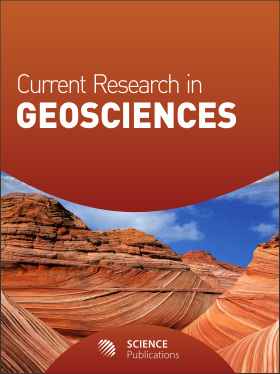Could Geometry Demystify Patterns of Earth Quakes and Aftershocks? An Answer is Yes
- 1 Texas State University, United States
Abstract
In this article, a pioneering (geometric) approach based on a new what is named here Glued Bivariate Poisson (GBP) distribution is constructed to demystify the 21st century incidences of earthquakes and their aftershocks. A warning risk index for an earthquake or an aftershock to occur is formulated and computed for each of the thirteen major tectonic plates. This article reports a surprise and it is that there exists a geo angle constancy, 1.571 in the results pertaining to earthquakes or aftershocks in all the tectonic plates no matter what varying interlocked “glue level” among the African, Antarctica, Arabian, Australian, Caribbean, Coco’s, Eurasian, Indian, North American, Pacific, Philippine, South American and Scotia tectonic plates. The contents of this article identified higher risk plates, which include Eurasian, India, Pacific and Philippines plates, where earthquakes of Kathmandu, Nepal (on 26 April 2015) and Chich-Shima, Japan (on 30 May 2015) occurred as validations of the contents of this article. An interesting geologic-constancy of 1.571 is noticed based on our statistical approach and an appropriate representative random sampling.
DOI: https://doi.org/10.3844/ajgsp.2016.1.9

- 4,325 Views
- 2,089 Downloads
- 1 Citations
Download
Keywords
- Glued Bivariate Poisson Distribution
- Prediction
- Correlation
- Regression
